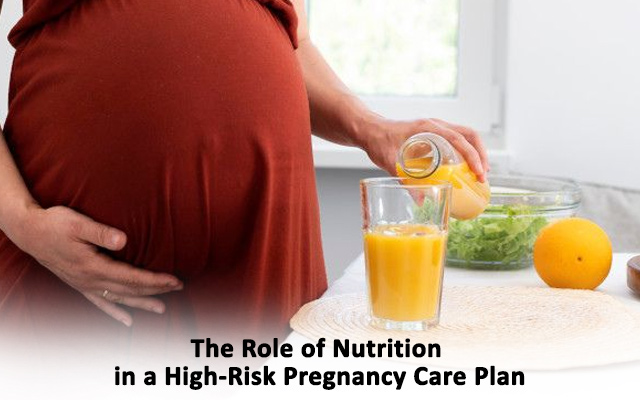A high-risk pregnancy can occur for a variety of reasons, such as pre-existing health conditions, age, multiple pregnancies, or complications like gestational diabetes. When you are facing a high-risk pregnancy, it’s important to take extra care of your health, including paying special attention to your diet. Here are some essential foods to include in your high-risk pregnancy care plan to help you stay healthy and give your baby the best possible start.
Folic Acid
Folic acid is essential for high risk pregnancy care plan as it supports the healthy development of your baby’s brain and spine. Foods sufficient in folic acid include dark green leafy vegetables like spinach and kale, beans, peanuts, sunflower seeds, and whole grains.
Iron
Iron plays an important role in preventing anemia, a condition that can be common during pregnancy. Iron is important for the production of hemoglobin, which helps deliver oxygen to both you and your baby. Foods rich in iron include spinach, tofu, dried apricots, eggs, lentils, and fortified cereals.
Calcium
Calcium is important for the development of your baby’s bones and teeth. It also helps to maintain your own bone health as pregnancy increases your calcium needs. Dairy products like milk, yogurt, and cheese are excellent sources of calcium.
Vitamin D
Vitamin D is essential for calcium absorption and plays a significant role in immune health. It helps ensure that your baby’s bones develop properly. Additionally, getting some sunlight exposure can help your body produce vitamin D naturally.
Stay Hydrated
Drink enough water to support digestion and reduce the risk of urinary tract infections. Aim to drink plenty of water throughout the day and include other fluids like soups and milk for added hydration.
Conclusion
Nutrition plays a crucial role in high-risk pregnancy care plans. By including nutrient-dense foods in your diet, you not only support your health but also create the best environment for your baby’s growth and development. Along with a healthy diet, it’s important to maintain a balanced lifestyle, get enough rest, and follow the advice of your healthcare provider. Always consult your doctor or a nutritionist for a personalized care plan that suits your specific needs during pregnancy.
With the right advice from the best gynecologist in Salt Lake, you will be better equipped to manage the challenges of a high-risk pregnancy and ensure the well-being of both you and your baby.


